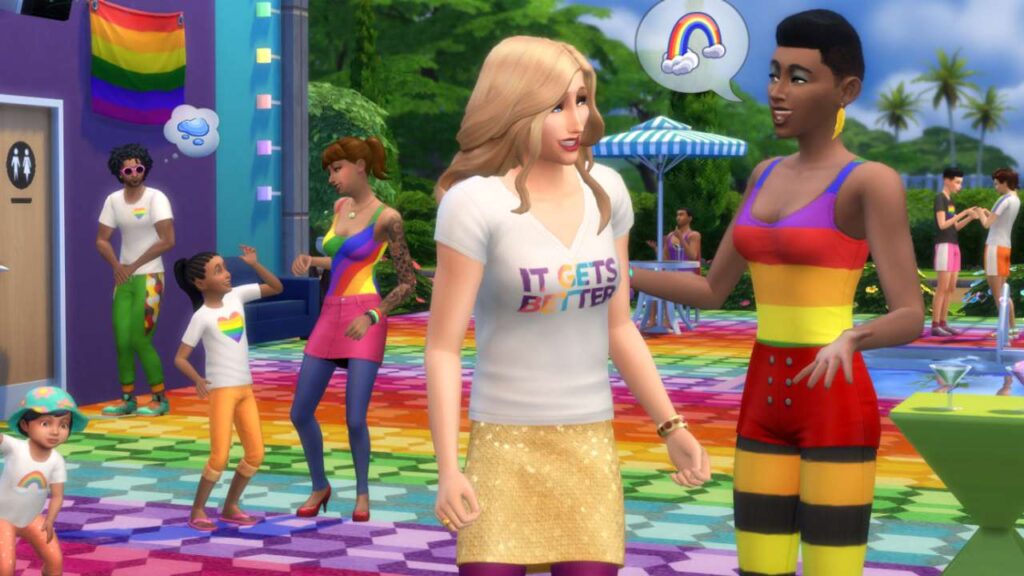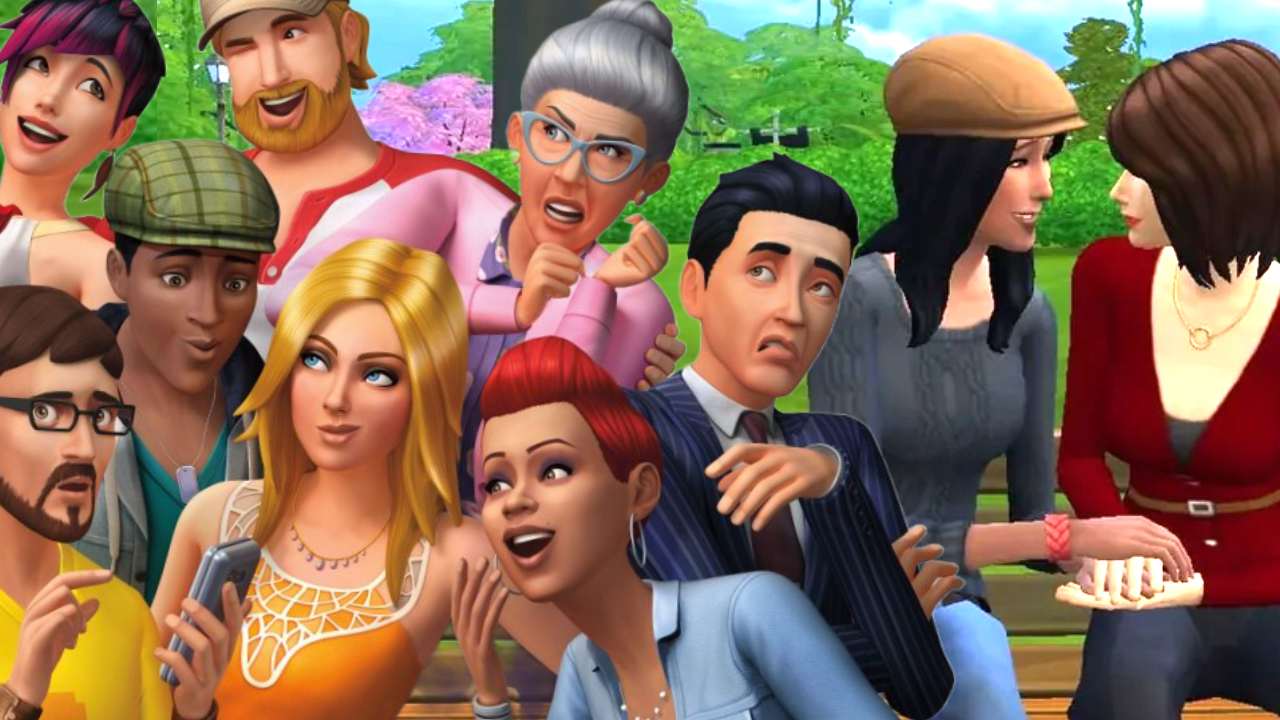Maxis’ The Sims is—at its core—a simulation of life, and, as Eddy Arnold said, what is life without love? Released in 2000, The Sims’ simulation of life was groundbreaking not just for its recreation of how life worked, but for its representation of all forms of love: straight, gay, bisexual and everything in between.
In design documents shared by programmer Don Hopkins back in 2019, the developer explained that including more types of relationships within the life simulator would “make for a more interesting game and anyone offended needs to grow up and get a life”. Now, in a time where the rights of same-sex relationships are threatened yet again, it seems more important than ever.
In an interview for an upcoming episode of our podcast, The Sims and The Sims 2 designer Charles London explained that The Sims was releasing in a time where politicians, namely anti-video game personality Jack Thompson, was placing the medium under a microscope for violence, sexual content and other content deemed to be unsavoury. But when discussing the importance of representing same sex partnerships in the game, London explained that it was “incredibly important”.
“It’s everything,” London explained, “and I think it’s existential for the business, right? It is certainly for society. I think it’s incredibly important for there to be a mainstream, beloved brand that says, ‘love is love and people are people, and all the things that I certainly personally believe in, but also I believe it is existential to that business because it is what allows it to be universally appealing, right? Young, old, male, female, gay, straight, other, right? American, Iranian, whatever.
“Its appeal and its recognition of the fundamental truths of our humanity is what creates the empathetic and emotional connection to that game that makes it so powerful. Its not that there’s so many pants you can dress them in. Don’t get me wrong, that’s an important part of the business, right? That’s also existential… but it’s very connected to evergreen toys like Barbie.”
“We chose the one that was both technically simpler, but also that was the one where we could look at ourselves in the mirror.”
The Sims and The Sims 2 designer Charles London on including same-sex relationships in the games.
London explained that The Sims sends “signals” to players that no matter who they are and what they feel, they are able to be themselves within the world of The Sims. “It’s much more than a game,” he said, “it’s a medium of self-expression. So I think it’s critical—especially at times like now”, referring to the ongoing “reactionary cycle” after a period of rapid progressivism.
“We will always go through this,” he continued. “And so when we are in reactionary periods, to have stalwart, beloved brands that are capable of sending this message is critical to society. But it’s also critical that those brands keep the faith because, if they don’t they’re going to stop beind brands. Because the only reason why they’re brands is because they appeal to such a wide audience, right?”
London explained that the team at Maxis wasn’t a “band of fearless social revolutionaries” at the time. The team didn’t use The Sims to discuss some of the pressing issues of the time—”we didn’t take a stand on war in the Middle East”—but bringing the fluidity of sexuality to The Sims simply wouldn’t have been true any other way.
“When it came to sexuality, we realised that we had to implement it in the game in order for these little humans to be little humans,” The Sims designer explained. “We didn’t have to be explicit. I mean, we obviously came up with a very comedic way—woohoo is quite tame—and it’s actually way more scandalous because we cover it up… but this is what humans do. Humans are sexual beings, humans reproduce, right? And without it, there’s no sense of time, there’s no sense of humanity, there’s no children.”

While The Sims is designed to be comedic or “derpy”, as London puts it, theere was simply no hiding from the debate of same-sex relationships. If the team chose to introduce gay relationships, it was taking a side, if it didn’t have gay relationships it was also taking a side, and only one is actually true to life. Gay people exist, and Maxis simply chose to do what was true to life.
“We chose the one that was both technically simpler, but also that was the one where we could look at ourselves in the mirror,” London explained. “These were modern people making the game in the Bay Area and we had done everything we could until then to be as true to humanity as possible and what, all of a sudden we were going to tell a lie? It just felt like a lie, right, to do anything but, it would’ve been a lie.”
London explained that the expression of sexuality in The Sims is indicative of the whole point of the series. The series is about choice, it’s about life, and it’s about how those choices shape your life and the others around you.
“I think it goes beyond the sexual,” London said. “The answer I gave actually is applicable to, I think, as many of the decisions we could have possibly made in The Sims where we are agnostic and where we leave room for player choice. The Sims must remain [agnostic] for it to be successful, it must remain a faithful canvas on which the player is free to project the story that, to them, is important and emotionally impactful.
“And that includes not just sexuality, it includes body image, it includes race, and it includes the choice of clothing. It includes the choice of architecture, the choice of job, structure, all the magnificent diversity of actual human life, and this is something that I the team, I think, deeply understands, deeply, deeply understands.”
Just like London explained, The Sims isn’t so much a game as it is a virtual representation of life, albeit with a slapstick, comedic twist in every single corner of its almost life-like world. No matter how many times certain groups try to push away diverse groups, they simply exist, they are, and part of The Sims’ identity is recognising that truth.
There is worry that developers like Maxis and Bioware will have to abandon diversity in their games following the acquisition of EA by Saudi Arabian investment groups. However, the day that The Sims removes diversity – if it ever happens – will be the day it’s no longer The Sims, and maybe then a competitor will finally make waves.






